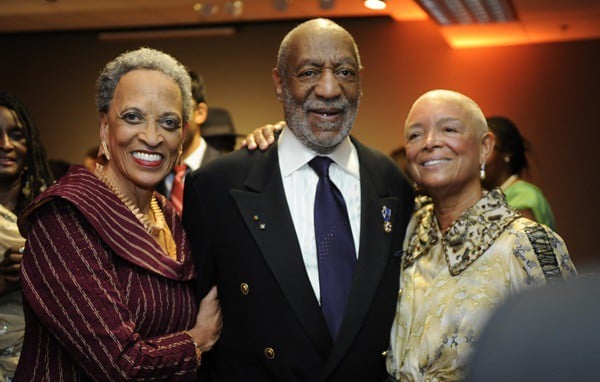
The Smithsonian Institution’s National Museum of African Art, in Washington, DC plans to keep open an exhibition that features works from the extensive African art collection of comedian Bill Cosby and his wife Camille even though Cosby was arraigned in a Pennsylvania court on three felony counts of aggravated indecent assault on December 30 following allegations that he had raped dozens of women.
Many who have been following the story, which involves accusations by more than 50 women to date, rejoiced (the Daily News, for example, minced no words with this scathing headline). But the National Museum of African Art, in Washington, DC, stands by the exhibition, titled “Conversations: African and American Artworks in Dialogue,” which was funded by the Cosbys with a $716,000 donation, a detail that the museum initially tried to hide. The show will remain open until its scheduled closing date of January 24, 2016.
“The National Museum of African Art in no way condones Mr. Cosby’s behavior,” reads a statement on the museum’s website. “We continue to present Conversations: African and African American Artworks in Dialogue because it is fundamentally about the artworks and the artists who created them, not Mr. Cosby.”
Museum observers and members of the public have called for the closure of the exhibition since this summer, to which Smithsonian secretary David Skorton responded that the art “speaks for itself, not its owners.”
The National Museum of African Art.
Photo: Wikipedia.
In August, museum director Johnnetta Cole penned an editorial for The Root in which she said she was unaware of the allegations against Cosby when she accepted the loan of the artworks and the simultaneous $716,000 gift, which the museum initially attempted to conceal. “Had I known,” she said, “I would not have moved forward with this particular exhibition.”
In the statement, Cole echoed Skorton’s sentiment that the exhibition is not about Cosby, but rather “about the interplay of artistic creativity in remarkable works of African and African-American art and what visitors can learn from the stories this art tells.”
Cosby is currently free on $1 million bail and is due back in court on January 14 for a preliminary hearing.